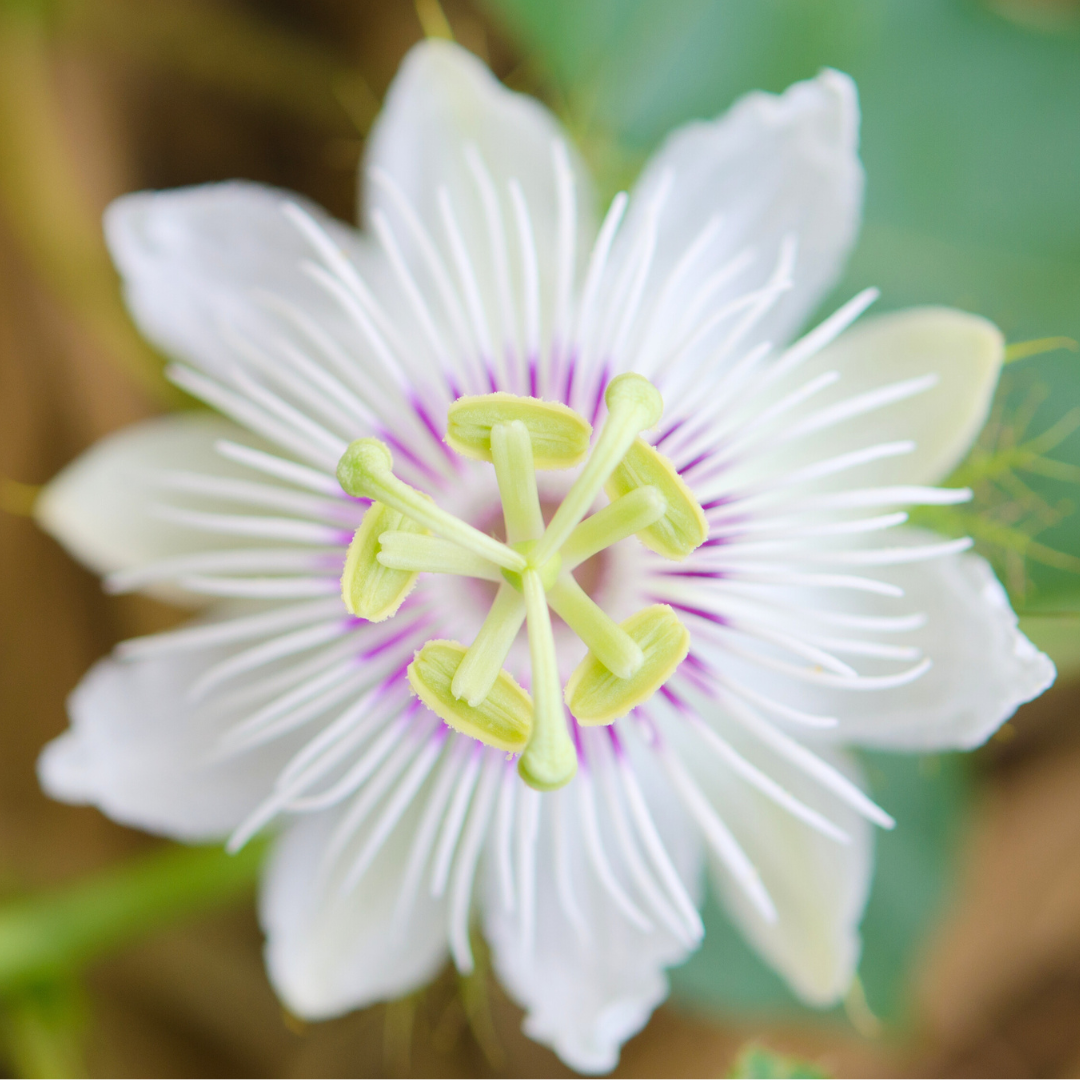Sleep is a vital aspect of our overall well-being, allowing our bodies to rest, heal, and rejuvenate. Unfortunately, many people struggle with insomnia, a sleep disorder characterised by difficulty falling asleep or staying asleep. Insomnia can have a profound impact on our physical and mental health, leading to fatigue, mood swings, and reduced productivity. While there are various conventional treatments available, some individuals seek natural remedies to address their sleep issues. Passionflower, a beautiful flowering plant, has garnered attention for its potential to alleviate insomnia. In this blog, we will explore the benefits of Passionflower for insomnia and how it can contribute to a restful night's sleep.

What is Passionflower?
Passionflower, scientifically known as Passiflora incarnata, is a perennial climbing vine native to the Americas. Revered for its beauty, the plant derives its name from its unique floral structure, which early Christian missionaries likened to the symbols of the Passion of Christ. Passionflower has a rich history of traditional use by indigenous cultures as a herbal remedy for various ailments, including sleep disturbances, anxiety, and nervous restlessness.

The aerial parts of Passionflower, such as its flowers, leaves, and stems, contain numerous bioactive compounds, including flavonoids, alkaloids, and amino acids. These compounds are believed to be responsible for the plant's therapeutic effects, making it a valuable herb in promoting relaxation and sleep.
Inducing Sleep Naturally

One of the primary benefits of Passionflower is its natural ability to induce sleep and improve sleep quality. When used as an herbal supplement, Passionflower's bioactive compounds interact with certain receptors in the brain, particularly GABA (Gamma-Aminobutyric Acid) receptors. GABA is an inhibitory neurotransmitter that helps reduce brain activity and induces relaxation.
By promoting the production of GABA in the brain, Passionflower can calm the nervous system and reduce stress and anxiety levels. This can be particularly beneficial for individuals experiencing insomnia due to racing thoughts and an overactive mind before bedtime. By easing the mind and promoting relaxation, Passionflower can make it easier for individuals to fall asleep and experience more restful sleep.

Calming the Mind: Passionflower's Anxiolytic Effects
Stress and anxiety are common culprits of insomnia. The pressures of daily life, coupled with unresolved worries, can lead to a continuous cycle of sleeplessness. Passionflower's anxiolytic properties, which help reduce anxiety levels, make it a valuable ally in combating insomnia.
The flavonoids present in Passionflower, such as chrysin and apigenin, have been shown to bind to specific receptors in the brain that regulate anxiety. By interacting with these receptors, Passionflower can modulate the release of neurotransmitters associated with stress, leading to a calming effect. As a result, Passionflower may help individuals struggling with sleeplessness due to anxiety find relief and improve their sleep quality.
Combining Passionflower with Sleep Hygiene Practices
While Passionflower shows great promise as a natural remedy for insomnia, it is essential to approach sleep health holistically. Incorporating Passionflower into a comprehensive sleep hygiene routine can maximize its benefits and contribute to better sleep outcomes.
Consistent Sleep Routine: Establishing a regular sleep routine can help regulate the body's internal clock, making it easier to fall asleep and wake up at the same time each day.
Create a Relaxing Bedtime Routine: Engaging in calming activities before bedtime, such as reading, meditation, or taking a warm bath, can signal the body that it's time to wind down and prepare for sleep. Only using the bed for sleep is also important as it trains the brain that the bed is for sleeping. Once the brain is trained, entering the bed will become a cue for sleep.
Create a Sleep-Conducive Environment: Ensure your bedroom is dark, quiet, and at a comfortable temperature to create an ideal environment for sleep. Melatonin, the natural sleep hormone is naturally produced by the pineal gland in your brain, and its production is influenced by light and darkness. The pineal gland begins to release melatonin when the environment becomes dark or when you are exposed to reduced light levels.
Limit Screen Time Before Bed: Exposure to screens emitting blue light can also interfere with the body's production of melatonin. Try to limit screen time at least an hour before bedtime.
Avoid Stimulants and Heavy Meals: Caffeine and heavy meals close to bedtime can disrupt sleep. Try to avoid these substances and opt for lighter snacks if needed.
Final Thoughts
Passionflower offers a great natural solution for insomnia, with its sedative and anxiolytic effects making it an attractive option for those seeking non-pharmacological sleep aids. Its long history of use in traditional medicine, coupled with modern research, supports its potential as a gentle and effective remedy for sleep disturbances.


